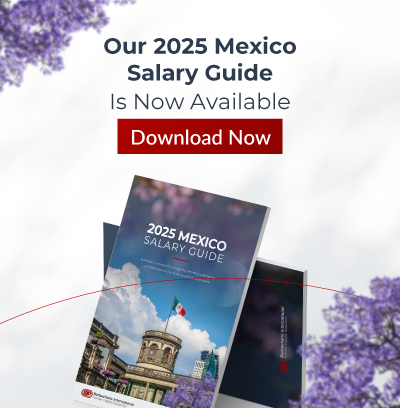
Mexico Employee Handbook
A clear and effective Employee Handbook can be one of the most important reasons for your business’s success. This is why:
First of all, it communicates who you are and what makes you different from the rest, offering your managers and employees a clear picture of what you expect from them. Also, it portrays the unique benefits your organization offers and a detailed description of your company’s corporate values and culture.
Second, and most importantly, the employee handbook is key to defining the way your business complies with employment legislation. Now, this is where it gets tricky, especially for U.S. multinational companies striving to achieve higher diversity by adopting multiculturism in the workplace.
Different Work Rules and Policies
How do US companies create work rules and policies that abide by Mexican laws, customs, and values as well as US federal and state laws without risking their corporate policies and values? A US-based company that will expand its workforce and hires Mexican employees must understand and acknowledge important aspects of the country’s labor laws, such as Federal Labor Law which offers certain protections to employees that don’t necessarily apply to the US. For example:
Severance pay
Employees who are let go without cause have the right to receive a severance based on 3 months of salary plus 20 days of salary for each year of service and the proportional amount of the Christmas bonus and vacation.
Vacation premiums
Employees must receive 6 days of paid vacation after one year of work, and an additional 2 days annually until the end of the employee’s fourth year.
Christmas Bonus
At the end of each year, it is mandatory that companies offer Christmas bonuses to their employees, also known as “aguinaldo”, which is an amount that equals at least fifteen days of paid salary.
Overtimes
Employees are allowed to work up to 3 hours a day and no more than 9 hours per week of overtime with a pay rate of double the salary.
Profit-sharing
Mexican employees are required to pay approximately 10% of their net annual income among all of the employees with more than 1 year of employment.
The Right to Collective Bargaining
Workers have the legal right to bargain collectively through independent labor unions and negotiate their own pay with their employers.
Personal Data Law
Companies who handle personal data such as information about a person’s race; ethnicity; health; philosophical, political, and religious beliefs; sexual preference, and membership in a union must so inform those individuals, who have the right to access, correct, and object to such procession of information or disclosure.
These provisions are much more specific than those provided to US workers, which is why companies must act accordingly when hiring to avoid violating Mexico’s law and obligations as an employer.
Consider Cultural Differences
Companies hiring in Mexico must also consider cultural differences before completing the hiring process. For example, workers frequently use public transportation to commute to work, which is not always reliable and can, therefore, lead to them not being able to comply with the expected work schedule. It is up to the company to decide if time flexibility will be granted and if workers will be provided financial support to access better means of transportation, or if the employee must abide by the rules no matter the circumstances.
Here is where your employee handbook comes in. It serves as a detailed guide that communicates to employees what your organization considers as acceptable behavior, even if local law has not adequately addressed these matters. Being able to practice these rules and policies thoroughly will balance the company’s compliance with the law as well as your corporate culture and global expectations regarding your personnel.
Start by Adding Structure To Your Employee Handbook
What then, is the best way to structure an Employee Handbook that can address such matters? Begin by ensuring your company has the right team to conduct an employment law audit to identify all applicable laws and compare it to your own policies and procedures. Once every area of opportunity is analyzed, it’s important to create a set of work rules and policies that comply with local laws but will also ensure all employees are treated consistently, no matter where your operations are located.
Due to the evolving nature of culture and unique practices between both countries, your employee handbook will constantly be changing. It is up to your organization to understand these differences and act accordingly to external norms, always taking into consideration that consistency may be set aside in some cases in order to make space for local exceptions.
Before determining if your Employee Handbook must be the same or similar in the U.S. as in Mexico, you must verify that your company has fully decoded the local jurisdiction’s law with the help of trained professionals in cultural analysis and interpretation. This is why creating a document of this type must not be taken lightly and should always be well planned to achieve geographical unity, and contribute to the success of your business.
Complying with external employment law will always be a challenge, but with the accurate instruction of an expert legal and human resources team, the leaders of your organization will be able to create and enforce an Employee Handbook that will guide your entire global workforce towards incorporating and adhering to your company’s culture.
Get In Touch With an Expert
At Barbachano International, we understand how important these human resource issues are for companies that operate globally. Feel free to contact us or visit our blog to learn more about Mexican employability and HR trends.

By Octavio Lepe
Director, Executive Search
The Human Capital Solutions leader in Mexico, Latin America, and the USA, offering high-impact executive search, executive coaching, and outplacement.
About Barbachano International
Barbachano International (BIP) is the premier executive search and leadership advisory firm in the Americas (USA, Mexico, Latin America, & Canada) with a focus on diversity and multicultural target markets. Outplacement and Executive Coaching services are provided by our sister allied company Challenger Gray & Christmas. Since 1992, BIP and its affiliates have impacted the profitability of over 50% of Fortune 500 Companies. BIP has been recognized by Forbes as Americas’ Best Executive Search Firms and currently ranks #27 and #3 on the West Coast. Headquartered in San Diego, California with satellite offices in Florida and Mexico. As member-owners of NPAworldwide Recruitment Network, we are supported by partner offices in over 50 countries.



